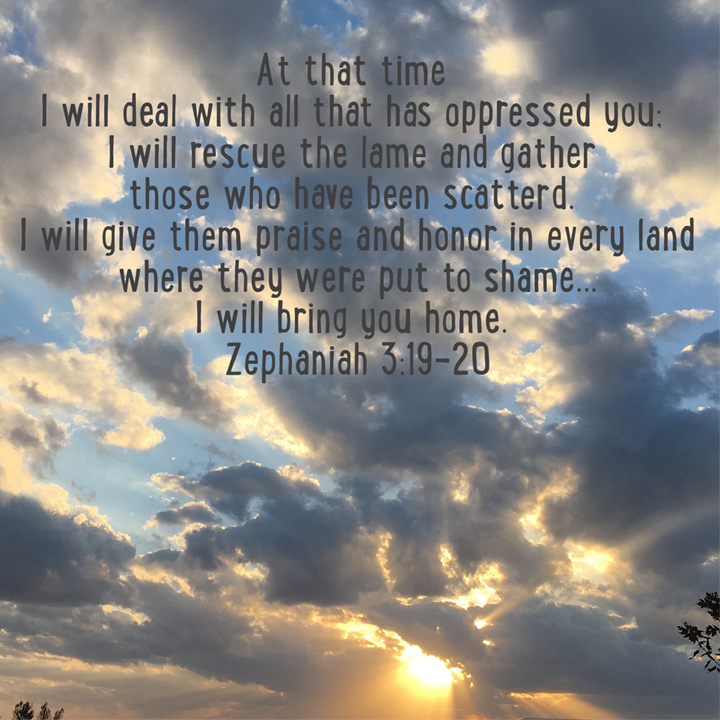After writing last weeks post on Shame Good and Evil, I was blessed to hear a series on Revive our hearts by Nancy DeMoss Wolgemuth titled Overcoming the Curse of Words. She put into words so beautifully what I was hoping to convey. You can following this link to the first of a 5 day series. https://www.reviveourhearts.com/radio/revive-our-hearts/overcoming-curse-words-day-1/ I believe it will be well worth your time listening to. Parents, grandparents, teachers or leaders of any kind can profit from what she says in these messages.
I do not share this because I think I have been such a good example, I would say it is just the opposite, I see my failure but long to learn to do better.
One other thing I want to share, which I have said before, It is not my desire to make victims from what is said in this blog. There are so many people who have been through hurtful things and have grown because of the hurt they have been through and have gone on to be a blessing in the lives of others. Yes, we have been mistreated and I will say for myself, I chose the wrong things to bring me comfort from my hurt and soon those things that have brought me comfort are unhealthy sinful responses. But, when I understand what I am doing I than become responsible to find the right response, which is bringing that hurt to God and finding in him my comfort and hope. This is where God wants us, leaning on Him, communing with Him and finding our joy and comfort in Him.
The following will just be some excerpts that have stuck a cord with me. As so often the case, they standout because I see my own failure.
Nancy: I have a friend who’s now a wife and mother of several children, who has talked to me a little about her upbringing. She was adopted as a little girl. Her adoptive father was involved in spiritual leadership in their church. But during her growing-up years in this adopted family, she experienced a lot of verbal and physical abuse.
Finally when she was a senior in high school, she got up the courage to go and talk to her pastor. She waited one night until the end of their youth group activities and then stayed after to talk to the pastor, fearing that since her father was one of the leaders in this church, the pastor would be concerned about this.
She talked to the pastor who basically told her, “You’re going to have to wait it out. You’re about to graduate. Just hang in there.” This was not particularly encouraging to her. But then, worse, when she got home late that night, somehow her parents had found out that she had been talking to the minister, and they had waited up for her.
This is what she says happened when she got home. She said,
They didn’t lay a hand on me, but for the next hour or so they told me repeatedly about how much I was an embarrassment to them, that I was ugly as dirt, that they wished they had never adopted me, and that I would never amount to anything.
All I remember doing was sitting there and crying. Finally, after saying those things over and over to me, they let me go up to my room. I fell on my face and cried out to God, and said that I couldn’t take it anymore. I wanted to die.
How many of you remember something that was similar—or maybe it was quite different—that was said to you as a child? Maybe it was said by parents, maybe by a friend (or someone you thought was a friend) or maybe by a classmate or teacher or a sibling . . . something that was said to you that hurt so deeply that you look back on it and see it as a curse of words. You still remember it, it still affects you today. How many of you have something like that that you can think of in your background? Most…
Whatever that curse might have been, however it was placed upon us, whoever may have placed it upon us, there’s hope that we don’t, as children of God, need to be in bondage to these curses that have been placed upon us in our childhood. For some of you it’s not your childhood. For some of you it’s in your marriage. Some of you are still living in a home . . .
Then remember, realize, that if you are a child of God, you are blessed, regardless of what others do or say to you. Something again, that you need to realize, others may have cursed you, but you have the blessing of God on your life if you are His child.
Then, realize that the blessing of God in your life is more powerful than any human curse—no matter what anyone may say to you, no matter how they may curse you.
Day 2:
As adults, part of becoming an adult is searching out the truth. And how do you do that? If you’re a child of God, you get into the Word of God. And you say, “I have a responsibility to find out what’s true and not just to let those things that were said that were untrue continue to dominate me and control me and haunt me. I’m not to live under the power of those things.”
That’s why Paul says in 1 Corinthians 13: “Become an adult in your thinking, when you grow up you think in adult ways. Put away childish things and renew your mind with the Word of God.”
I think that’s why in Philippians 4 where Paul says “Whatever things are true,” that’s what he puts first, then pure and good and lovely and of good report.
But the first thing is true. Whatever things are true, think on these things. And if you do, the peace of God and the God of Peace will guard your heart and will guard your mind, will put a protection around your mind and will deliver you from the attack and the assault of those things that may have been said as a child (see Phil. 4:8–9).
Day 3:
Think about how you’re raising your children and the way that you correct them, and the way that you react when they do wrong. Are the words that come out words of blessing?
Now that doesn’t mean you bless them for sinning. But as you’re correcting them, are you doing it in a way that blesses them and edifies and builds them up? Or do you do it hastily in words that curse and put down? Do you say things that, if you stopped and thought about it, you would know were going to be so damaging?
If you don’t want to ask your husband or your children or your parents, ask the Lord. “Lord, are there ways that I’ve been using my tongue with the people I’m closest to, to curse rather than to bless?”
I think we’re so often clueless about the impact of our words. Let me say again that it’s especially true in the family. Parents don’t realize how the things they say to their children in private or in public . . . I hear some things said to children in public that I think, If they talk that way in the store, how do they talk at home? They’re not thinking. They’re clueless. They don’t realize the impact. And so many wives who don’t realize how their words curse their husbands.
Day 4:
As parents, this is a fine line we’re talking about here. You want to encourage your children to do their best, and when they’re not doing as you know they could, part of parenting them is leading them to be all they can be. But there’s a fine line you can step over where your children feel that they’re always being evaluated or criticized, that they never do well enough, that they can never perform well enough.
I’ve watched some parents, who often come out of perfectionistic or performance-oriented backgrounds themselves, who tend to be more prone—I think—to do this with their own children. He could always do better. He could always do more. . .
In their heart they love their children. Their heart is not to curse their children. But ask yourself, are these words that make that child feel accepted? affirmed? Now, again, as a parent, you don’t want to affirm your children in sinning. But I’ll tell you what. Your correction of your children, when it’s needed, will probably be a whole lot more fruitful if it comes in a context of their having heard you express that you’re pleased with them—that their efforts, what they have done, are acceptable to you.
It’s amazing how many people carry over this performance mentality into their relationship with God—always just trying to perform. Living under the law, living under the bondage of trying to be good enough. It’s a form of cursing that you can give to your children, that constant criticism and evaluation.
If you sow blessing, you will reap blessing. If you sow cursing—even if that’s what was sown into your life, you sow it back—that’s what you’re going to reap. You may reap cursing from that person that you’re cursing back, or you may end up reaping cursing from others, but you will reap what you sow.
So refuse to return cursing for cursing—no matter who the person is, no matter what they’ve done, no matter what they’ve said. Instead, ask God to show you how to return blessing—a positive, proactive, powerful blessing . . . to return blessing to the very ones who have cursed you.
Day 5:
There’s a transforming power in blessing, much as there’s a transforming power in cursing. I look at family relationships, many that I know today, and I see such breakdown of the family unit and men who aren’t being men, who aren’t providing for their families and who are being vulgar and vain.
I see women who are being immoral, and they’re in the church. So where does all this come from? Well, we can never excuse our behavior by what has been said to us, but I wonder how much of the way people are living is that they are living out things that have been said to them. The curse of words.
I wonder how different their lives might be had they been under the blessing of words, words of blessing. End of Nancy’s words.
I hope sharing these few passages from her radio program will encourage you to listen to it all, but if you aren’t able to find the time, I think you get the idea of the power we have with our words to bless those in our lives or to curse or harm our loved ones. We are always needing to learn and grow in our relationships with each other and it is never to late, with the help of God, to turn some of the hurt around. I have watched relationships where someone longed to get things right with a family member and this longing was so deep, the very first actions of a softening caused them to run back for reconciliation, much like the Father in the story of the protocol son found in Luke 15: 11 – 24. https://www.biblegateway.com/passage/?search=Luke+15%3A+11-24&version=ESV
Of course this is not always the case where there is such a desire for restoration, but I can’t feel if we bless with our words and actions we will begin the softening process in hard hearts. I have also witness cases where the blessing of words could not reach their hearts and as Nancy said you could see in their past very hurtful relationships.
May the Lord bless each of you who read this, whether the hurt is in your own life or if you seek to help other hurting people. My guess would be if you are seeking to help other hurting people it is because of the hurt you have felt in your past and now desire to bless other who hurt!



 A few years back I started a blog called “Hope for wounded hearts.” I have never shut the blog down since in the back of my mind I really wanted to write again.
A few years back I started a blog called “Hope for wounded hearts.” I have never shut the blog down since in the back of my mind I really wanted to write again.





